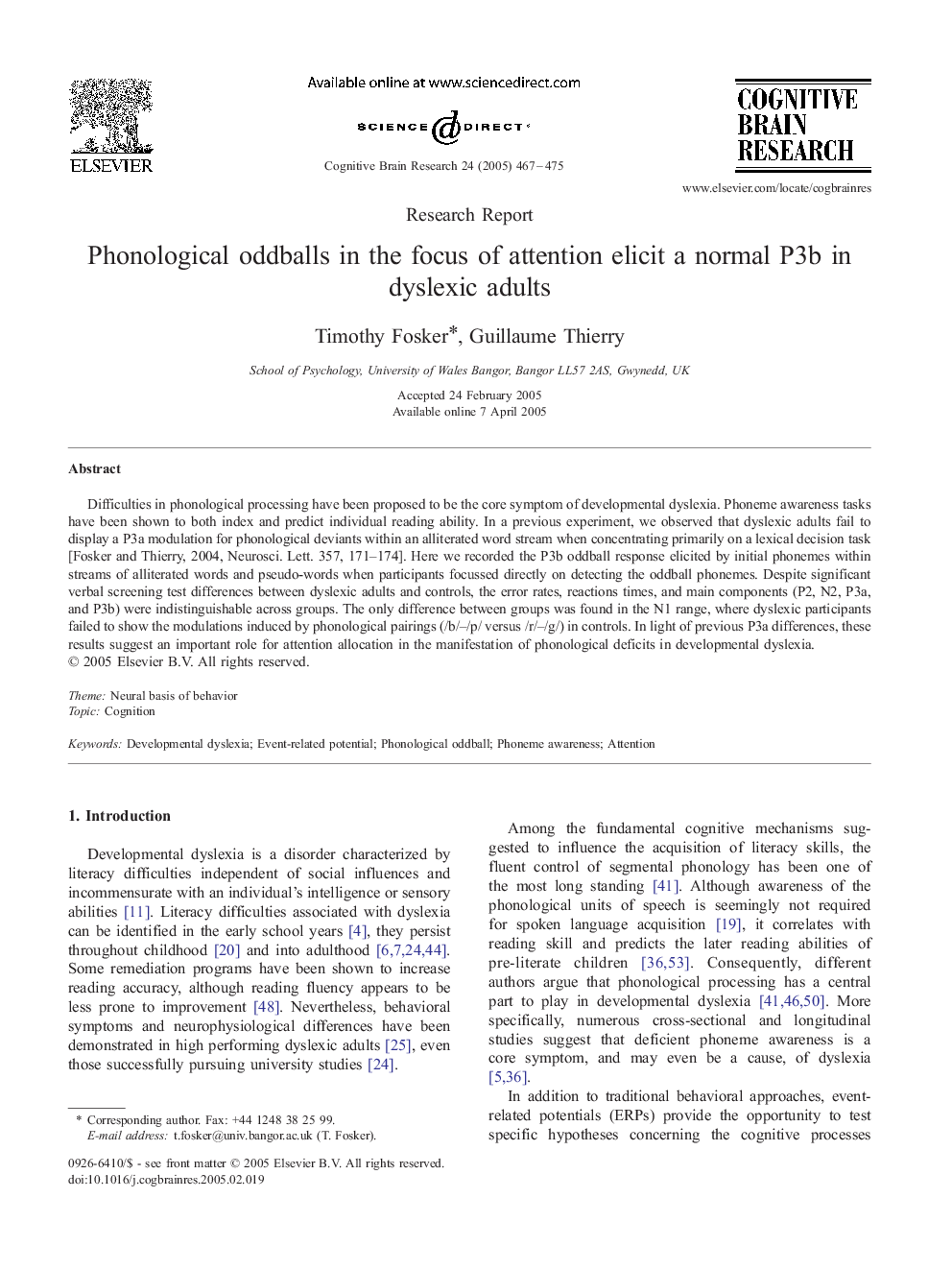| Article ID | Journal | Published Year | Pages | File Type |
|---|---|---|---|---|
| 9408021 | Cognitive Brain Research | 2005 | 9 Pages |
Abstract
Difficulties in phonological processing have been proposed to be the core symptom of developmental dyslexia. Phoneme awareness tasks have been shown to both index and predict individual reading ability. In a previous experiment, we observed that dyslexic adults fail to display a P3a modulation for phonological deviants within an alliterated word stream when concentrating primarily on a lexical decision task [Fosker and Thierry, 2004, Neurosci. Lett. 357, 171-174]. Here we recorded the P3b oddball response elicited by initial phonemes within streams of alliterated words and pseudo-words when participants focussed directly on detecting the oddball phonemes. Despite significant verbal screening test differences between dyslexic adults and controls, the error rates, reactions times, and main components (P2, N2, P3a, and P3b) were indistinguishable across groups. The only difference between groups was found in the N1 range, where dyslexic participants failed to show the modulations induced by phonological pairings (/b/-/p/ versus /r/-/g/) in controls. In light of previous P3a differences, these results suggest an important role for attention allocation in the manifestation of phonological deficits in developmental dyslexia.
Keywords
Related Topics
Life Sciences
Neuroscience
Behavioral Neuroscience
Authors
Timothy Fosker, Guillaume Thierry,
